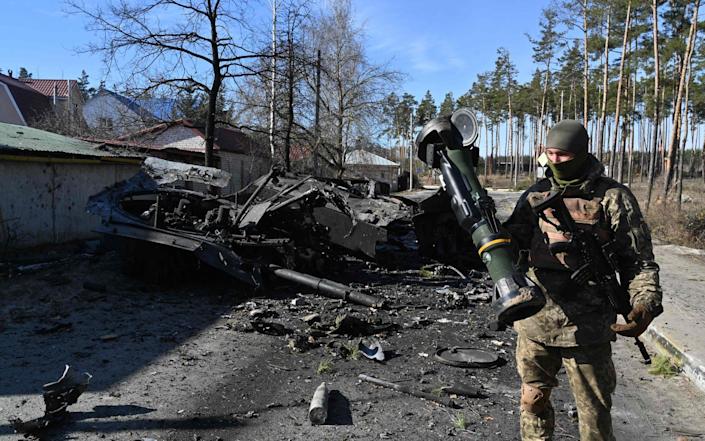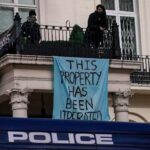
A top Russian official has become the first of Vladimir Putin’s inner circle to admit the Ukraine invasion is not going to plan, as Washington reported Moscow’s forces stalling on almost all fronts.
Viktor Zolotov, head of the Russian National Guard and the president’s former personal bodyguard, said that “things are not moving as fast as we would like”.
He claimed that “this is only because Nazis are hiding behind civilians, the elderly, women and children and set up firing positions at kindergartens, schools and residential buildings”.
Last week Sergei Shoigu, Russia’s defence minister, said everything was “going according to the plan”. In public, Putin has not shown any frustration with the pace of the invasion.
But Russian troops appear to be increasingly bogged down in Ukraine, where they have come up against fierce military resistance and an overwhelmingly hostile population.


Mr Zolotov oversees Russia’s riot police, which are used to crush opposition protests at home and have been involved in Russia’s military operation in Ukraine. The National Guard is expected to act as the main law enforcement in the territories occupied by the Russian army.
Russian officials continue to deny having caused any civilian casualties and have repeatedly blamed “Ukrainian nationalists” for using the population as a “human shield”.
Russia’s defence ministry warned Kyiv on Monday that it would be carrying out “retaliatory” air strikes on Ukraine’s military sites, after what it said was a deadly shelling of civilians by Ukrainian forces in the separatist-controlled city of Donetsk.
The Russian military urged Ukranians who work at military facilities or live nearby to “leave the potentially dangerous areas”.
Meanwhile, peace talks between Russia and Ukraine on Monday failed to bring any significant progress.


Mykhail Podolyak – an adviser to Volodymyr Zelensky, the Ukrainian president – said the latest round talks would pause for a “technical break”, so that the parties could do “some extra work” to clarify unspecified issues.
Vladimir Medinsky, Russia’s lead negotiator, said meetings would continue on Tuesday. Mr Medinsky made no mention of any change to Russia’s negotiating position, but Kremlin officials in recent days have appeared to be scaling back their demands.
Shortly after the invasion, Putin branded the Kyiv government a “gang of drug users and neo-Nazis” and suggested that Moscow would not rest until Mr Zelensky’s administration was toppled. The rhetoric has somewhat softened since.
Sauli Niinisto, the Finnish president, who spoke to Putin on Friday, said the Kremlin had ditched the idea of a regime change in Kyiv.
“It seems that changing the government of Ukraine is not on the list anymore,” he told CNN. He said that when he confronted Putin, the Russian leader claimed he “never demanded it”.
Meanwhile, a senior US official said at a briefing on Monday that “almost all of Russia’s advances remain stalled”.
Russian forces approaching Kyiv from the east remained some 15 miles from the capital and faced “heavy resistance” from Ukrainian forces, making no noticeable progress, the official said.
Russia at the weekend launched a deadly air strike on a military range in western Ukraine, just 12 miles away from the Polish border.
[embedded content]
The US official said on Monday that there were no US military personnel, contractors or US civilians at the base in Yavoriv at the time of the attack.
The attack at the military site near a Nato member state has pushed Kyiv to renew its call to impose a no-fly zone over Ukraine – an idea that the UK and other Nato allies have rejected, fearing that it might trigger a wider military confrontation.
The US official said the missiles that hit the military range were launched by Russia’s long-range bombers form Russian airspace.
“For advocates of a no-fly zone, it would have had no effect on these strikes,” the official said.




